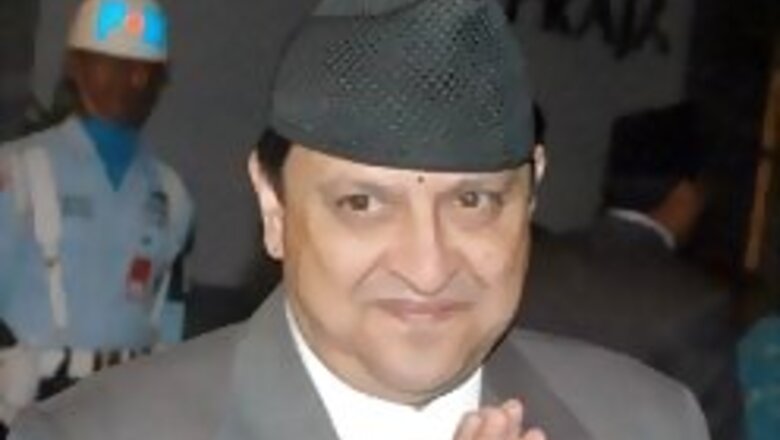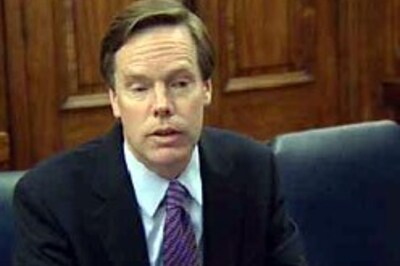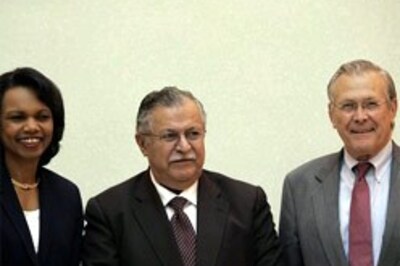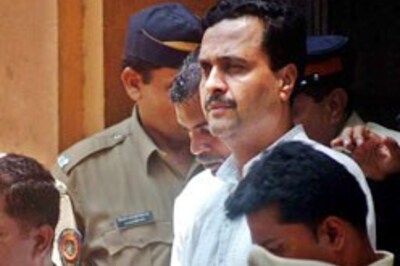
views
Kathmandu: Nepal's isolated King Gyanendra called for the success of a fragile peace process in the troubled Himalayan nation on Monday, his first public comments since being forced by street protests to cede power in April.
The king, who has been reduced to a figurehead and is staring at the strong possibility of the monarchy being abolished, invoked the Hindu goddess of power to guide Nepal through what he called a difficult juncture in history.
King Gyanendra, who has had no role to play in the peace process and has rarely been seen in public since April, joined a chorus of voices that are hoping for the moves to succeed as the country celebrated Dasain, the biggest annual Hindu festival.
''The realisation of the efforts at instilling a sense of peace and security among the people by ensuring the success of the ongoing peace process is the need of the nation at this hour and also what the people aspire for,'' he said in his traditional Dasain message to the nation.
The message was circulated by the state-run RSS news agency and excerpts were read on state radio.
''May Goddess Nava Durga Bhavani inspire us all to move ahead on the strength of national unity and reconciliation at this difficult juncture in our history,'' the 59-year-old king said.
Weeks of often violent protests in April forced Gyanendra to end nearly 15 months of absolute rule and hand power to a seven-party alliance that organised the protests and was supported by the Maoist rebels.
The monarch had justified taking power saying he wanted to crush the rebels as political parties had failed to tackle them.
The new government and the rebels, fighting since 1996 to topple the monarchy, have since been observing a ceasefire and esumed peace talks that collapsed in 2003.
The Maoists and the government are also preparing to hold elections for a special assembly in 2007 to prepare a new constitution that will decide the future of the monarchy.
The assembly was a key demand of the rebels, seeking to set up a communist state in Nepal, to end their decade-old insurgency in which more than 13,000 people have died.
But the peace process has made slow progress due to disagreements between the two sides over disarming the rebels and the role of the monarchy in an interim constitution.
Talks between the two sides have been delayed and are now expected to be held on October 8.
Urging for unity and reconciliation, King Gyanendra said, ''Only the collective commitment of all Nepalis can give continuity to the glorious history'' of the embattled nation and guarantee its prosperity''.
Traditionally, many Nepalis considered the monarch as an incarnation of Lord Vishnu, the Hindu god of protection and one of the religion's sacred trinity.
But the image was tarnished after a palace massacre by the then crown prince in 2001 and took a further blow when Gyanendra grabbed power in 2005 only to be humbled by this year's democracy campaign.
The new multi-party government has since curtailed most of the king's powers, stripped his control over the 90,000-strong army and even subjected him to taxes.




















Comments
0 comment